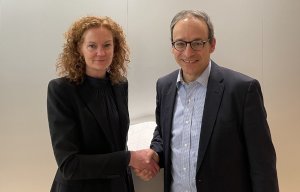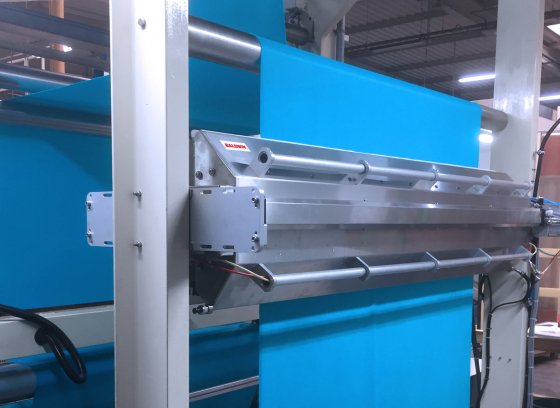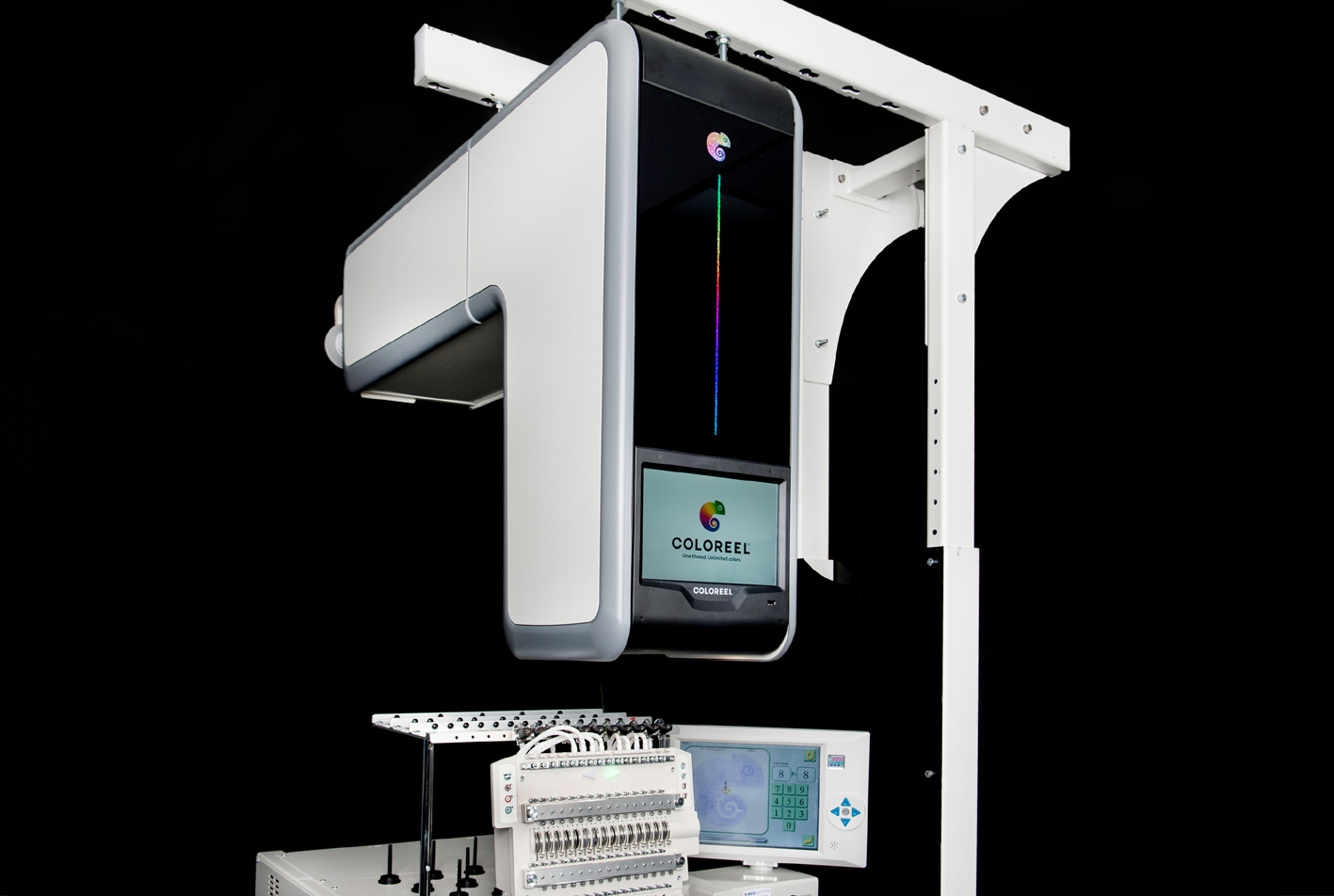
TMAS joins the ITMF
Sweden now leads the field in addressing early-stage circularity for the textiles and clothing industries.

28th October 2021
Innovation in Textiles
|
Sweden
Members of TMAS – the Swedish textile machinery association – are proving instrumental in pioneering new sustainable processes for the dyeing, finishing and decoration of textiles.
The wasteful processes involved in these manufacturing stages are only one component in the development of viable circular supply chains for textiles that are now being aggressively established in Sweden.
At the recent Conference on Sustainable Finishing of Textiles, held across three separate afternoons on September 30th, October 1st and October 7th, delegates heard that Sweden will introduce extended producer responsibility (EPR) for waste textiles and clothing at the beginning of 2022, ahead of the adoption of a similar European Union-wide EPR system in 2025.
In Sweden, this is already leading to the establishment of advanced digital sorting and recycling infrastructure and from a brand perspective, H&M now leads the field in both addressing circularity from its suppliers and minimizing its own waste.
New fibres
Swedish companies are also active in the development of new fibres derived from waste clothing, building on the country’s legacy leadership in pulp and paper production.
At the Sustainable Finishing of Textiles Conference, however, it was said that all of the environmental gains made by such sustainable new fibres can potentially be cancelled out in the further processing they are subjected to – and especially in resource-intensive conventional dyeing, finishing and decoration.
TMAS members Baldwin Technology and Coloreel have both developed solutions to address this issue.
TexCoat G4
During the conference, Baldwin’s VP of Global Business Development Rick Stanford explained that his company’s TexCoat G4 non-contact spray technology significantly reduces water, chemistry and energy consumption in the finishing process. It consistently and uniformly sprays chemistry across a fabric surface and applies it only where needed, on one or both sides.
“Customers can expect no bath contamination during the finishing process, as well as minimal downtime during changeovers, which are made easy with recipe management that includes automated chemistry and coverage selection,” he said.
The TexCoat G4 also wastes no chemistry during color, fabric or chemistry changeovers, and because only the required chemistry volume is applied to the fabric, wet pick-up levels can be reduced by up to 50% – leading to 50% less water and energy consumption compared to conventional finishing processes. Furthermore, several customers are combining TexCoat Spray and back-coating in series prior to the stenter. This simplifies the production process from two steps to one, delivering both drying savings and productivity increases.
Instant coloring
Coloreel’s CEO Mattias Nordin outlined the benefits of his company’s technology which enables the high-quality and instant coloring of a textile thread on-demand and can be paired with any existing embroidery machine without modification. This enables unique effects like shades and gradient to be achieved in an embroidery for the first time.
“Our technology is now commercialized and we are scaling up our business gloablly,” Nordin said. “The foundation of the company was based on the idea that there were millions of varieties of thread reels out there, many of which would become obsolete and turned into waste and that it would be simpler to dye the thread as you use it. That’s what we have achieved.”
Coloreel
Based on a CMYK ink system, Coloreel’s advanced rapid coloring software and high-speed drive technology allow a single needle to carry out what previously required multiples of them to do – and with much more consistent stitch quality,

In addition, existing thread dyeing plants can add a single solid color to a thread, but by instantly coloring a white base thread during production, Coloreel enables complete freedom to create unique embroideries without any limitations in the use of colors. Color changes along the thread can either be made rapidly from one solid color to another, or gradually, to make smooth transitions or any coloring effect desired.
This provides big benefits when it comes to sustainability. There is a significant reduction in wasted inks, while water usage is minimized, and production speeds are increased. The technology allows set-up and lead times to be reduced as well as significant flexibility in production quantities, while eliminating the need for large thread inventories.
“Our system is allowing customers to achieve color effects that have never been seen before – and at a new level of efficiency,” Nordin said.
“It’s great to see TMAS members playing a pioneering part in what is now shaping up to be a vital rethinking of the textile supply chain here in Scandinavia,” added TMAS Secretary General Therese Premler-Andersson. “All of these ideas are now gaining momentum and likely to be adopted throughout the world. A more circular and sustainable industry will be the result, to the benefit of everyone.”

Business intelligence for the fibre, textiles and apparel industries: technologies, innovations, markets, investments, trade policy, sourcing, strategy...
Find out more